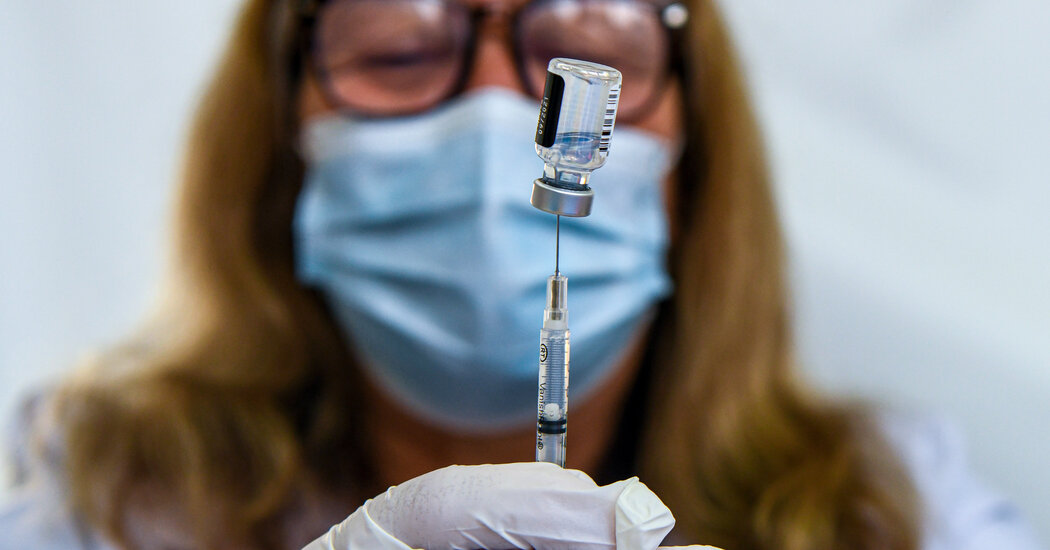Federal regulators authorized second booster shots of the Pfizer-BioNTech and Moderna coronavirus vaccines on Tuesday for everyone 50 and older, descr
Federal regulators authorized second booster shots of the Pfizer-BioNTech and Moderna coronavirus vaccines on Tuesday for everyone 50 and older, describing the move as an effort to bolster waning immunity against severe disease in case the virus sweeps the nation again in the coming months.
The Food and Drug Administration said people in the age group could get the additional shot at least four months after their first booster. The agency also authorized a second booster for people 12 and older with certain immune deficiencies.
The decision means that tens of millions of Americans are now eligible for what would be their fourth shot. And even though the public may be tiring of repeated doses, the move is most likely an interim one: Federal health officials say it is quite possible that Americans of all ages may need another shot in the fall to prepare for any winter surge. The hope is that by then, scientists will have reconfigured the existing vaccines to work better and last longer against the variants that have emerged since November.
Federal health officials initially considered limiting second boosters to those at least 60 or 65 years old. But at a news briefing, Dr. Peter Marks, who oversees the F.D.A.’s vaccine division, said a lower age limit made more sense because so many Americans over 50 have chronic medical conditions that put them at risk.
While a single booster dose continues to protect most Americans from hospitalization and death due to Covid-19, he said, those 50 or older who got their first booster more than four months ago “should seriously consider getting another.”
The Centers for Disease Control and Prevention was a bit more circumspect. In the fall, when the first round of boosters was authorized, the agency cited a clear benefit from an added shot.
On Tuesday, in contrast, the C.D.C. updated its vaccine guidance to note that second boosters were now allowed. Dr. Rochelle P. Walensky, the agency’s director, said the option of another dose was “especially important for those 65 and older and those 50 and older with underlying medical conditions that increase their risk for severe disease from Covid-19 as they are the most likely to benefit from receiving an additional booster dose at this time.” About one-third of people aged 50 to 65 have significant medical conditions, officials said.
The F.D.A. made the decision with very limited data, largely from Israel. Experts said there was fairly robust data showing a need for stronger protection now that variants have cut into the vaccines’ potency. There is significantly less data on whether a second booster will provide that protection, and for how long. Regulators said another dose posed no new safety concerns.
The idea that just six months after federal regulators authorized the first round of boosters, another booster is already necessary could add to public fatigue with Covid vaccines. The evidence now suggests that the government’s decision last fall to authorize a first booster — the subject of much scientific debate at the time — saved lives over the winter. While the Omicron variant surged, those who were boosted were 21 times less likely to die from Covid and seven times less likely to be hospitalized than those who were unvaccinated, according to the C.D.C.
But at this point, “each additional dose is offering marginal value,” said Dr. Eric Rubin, an infectious diseases expert at the Harvard T.H. Chan School of Public Health. At an event hosted by Columbia University this week, Dr. Kate O’Brien, the director of the vaccines department at the World Health Organization, said, “We’re in a relatively weak position on the sort of policy front around exactly what the data are that are compelling decisions about fourth doses.”
www.nytimes.com
